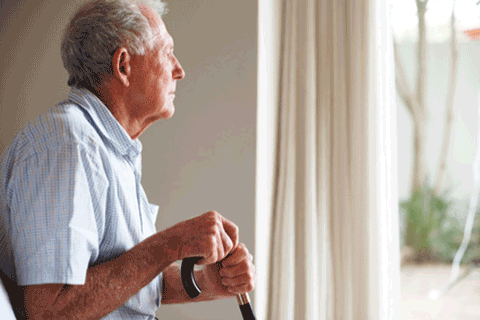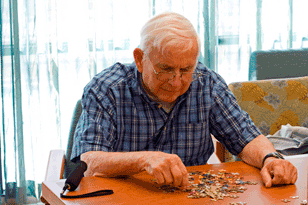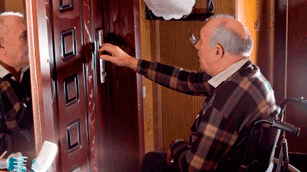
 |
Depression Can Cause Memory LossBy Gretchen Heuring | 07.01.2014 |
Memory loss can be caused by depression. It is as though a cloud of sadness filters out the will to remember even the smallest things. The US National Institutes of Mental Health estimates that one in ten adults suffer from major depression for at least one period of their lives.
As we grow older, there are new causes for sadness. We have losses. Some seem small, we lose our hair or our hair color. Perhaps we lose teeth. Hearing and eyesight are less acute. Our skin sags here and there. Our culture teaches that we have lost our allure. Strangers don't smile or even notice as we pass by. Much has been written about how older people feel they have "disappeared." Sadness is part of adjustment to loss and can lead to true depression.
More serious changes often occur in later life. Chronic diseases emerge such as heart disease, arthritis amd hearing or vision loss. These can change how we move about, eat, sleep or generally enjoy life. It's understandable that one or more of these problems might trigger a depression.
Depression is a normal response to changes we do not like. Eventually, we move on to find hope and purpose again and leave our sadness behind. Some people are not able to easily adapt and depression can become an illness of it's own.
Sadness Due To Loss Is Normal
Sadness over loss and some associated forgetfulness is a normal part of the healing and adjustment process. It's important to be patient, loving and watchful when an older person has suffered loss. Loss of a loved one, a friend or a pet, can lead to deep grief and feelings of despair.
The sad person will dwell on memories for awhile and can have difficulty concentrating on immediate or current situations. Healing can take a few months and may not resolve for a year or even longer. Recovery is different for everyone who grieves. It may seem that your older person is absent from your life for awhile. If you miss her, be sure to let her know. Feeling valued is strong medecine.
There are some things that help resolve the normal depression response to changes. These include getting outside in the fresh air and sunshine, laughter for any reason, drinking plenty of fresh water, eating regularly and right, and mixing with other people.
The Healing Process
Mindfulness truly helps healing from depression. Self-awareness might begin with a change in season or temperature, the softness of a pet's fur, or the laughter of a baby. Ask your person how these things feel to her. She may struggle to respond. Be patient and you could be able to witness some of her discovery.
We have different feelings and interests, so identifying physical, emotional, mental and spritual experience is certainly valuable. We humans respond to personal energy, so your person could indeed respond to annoyance or anger on the part of others. She might seem to "break out of it" and say something ugly and to the point. Rather than allow this to happen, try to maintain a flow of positive energy when you are with her. Talk about your good moments and memories, play music, perhaps a puzzle or a short game.
Remember that this is not about you. If you and your person have unresolved problems, try hard to set them aside and concentrate on the present. She needs to get well. Try to remember that you are not alone, love is everywhere.







